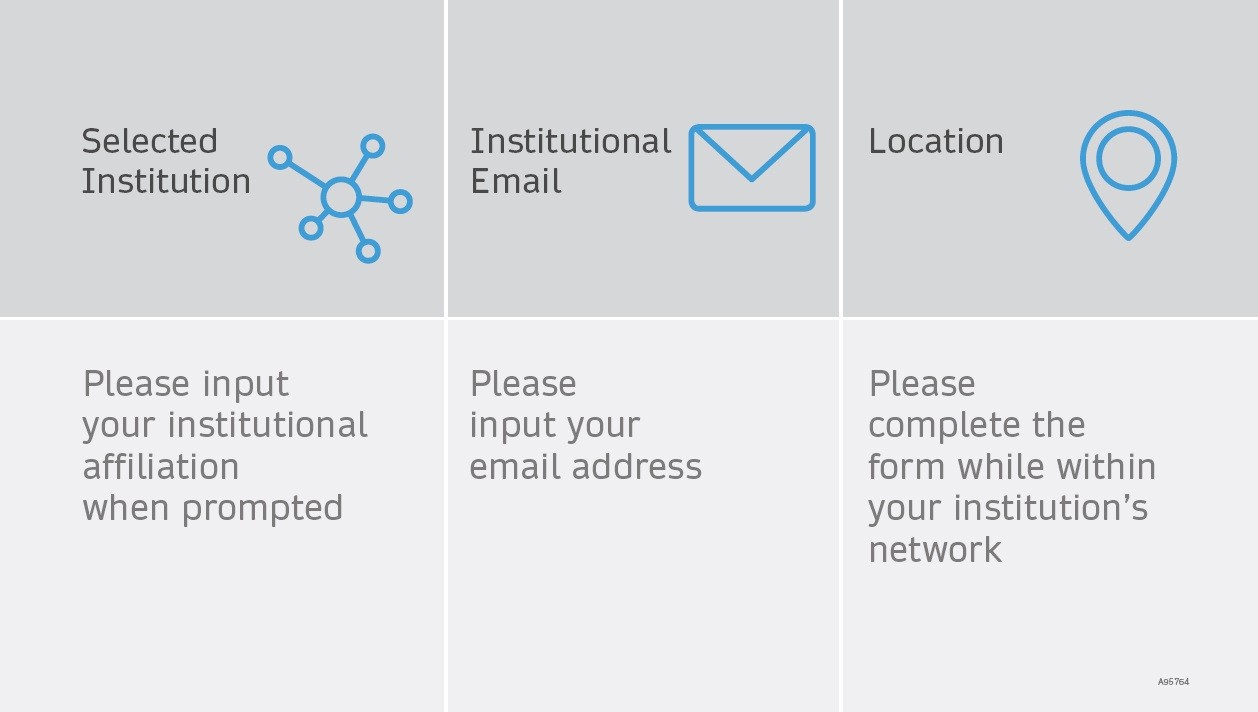Who is considered the corresponding author?
The corresponding author is defined as the person who handles the manuscript and correspondence during the publication process – from manuscript correction and proof reading, to handling the revisions and re-submission of revised manuscripts up to the acceptance of the manuscripts.
The corresponding author has the authority to act on behalf of all co-authors in all matters pertaining to publication of the manuscript including supplementary material. They are also responsible for obtaining such agreements and for informing the co-authors of the manuscript’s status throughout the submission, review and publication process.
In addition, the corresponding author acts as the point of contact for any enquiries after the paper is published.
How can I make sure my article is eligible?
There are three ways we can recognise your eligibility for open access publication through this agreement.

Upon acceptance of your article, you'll also be prompted to provide your institutional affiliation. If you are eligible, your institution will complete the approval process without causing any delays to the manuscript publication process.
How do I know if my article has been approved?
The approval manager at Couperin/your institution will approve your article's eligibility based on your institutional affiliation, article type and journal name.
Once your article is approved, you will be notified by email and your article will proceed to publication.
What if I'm not covered by the agreement?
There are still plenty of ways to find funding for your article processing charge (APC). Visit our open access funding page to check whether your institution or research funder makes OA funding available.



